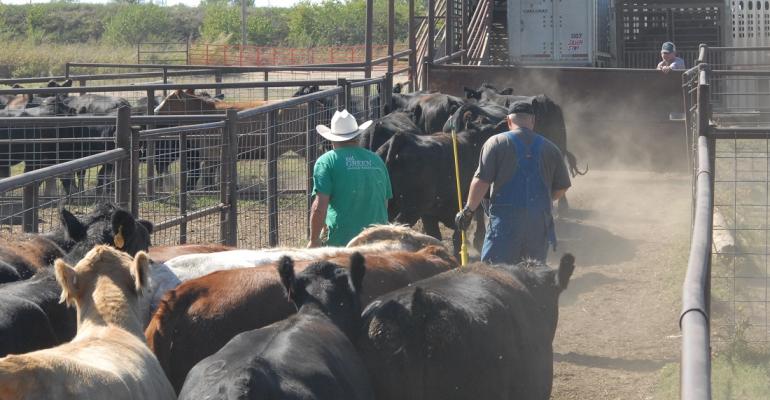Beef Producer: NAFTA study suggests US producers losing

The North American Free Trade Agreement has come under fire from President Trump’s administration, yet some beef producers defend it. What are the facts?
by Alan Newport | May 01, 2018
Trade issues are hard to weigh, but USDA-ERS analysis showed a net loss to the US beef industry from NAFTA.
I have been looking at the North American Free Trade Agreement (NAFTA) for some time and several months back penned an analysis for BEEF’s website on whether the agreement was positive or negative for US beef producers.
At that time I had found what seemed a statistically valid study from USDA’s Economic Research Service. It’s called NAFTA at 20: North America’s Free-Trade Area and Its Impact on Agriculture. It is dated 2015, and it is an analysis of a three-year period before the 1994 trade agreement and a three-year period after. Certainly things could have changed since the data was gathered, and I’ve not found anything more current. I suggest if it has a bias, it might be in favor of the agreement since the study is, after all, from a government source. But who knows.
Remember that NAFTA was pushed on us with the rhetoric it would be a great improvement in trade that would benefit the citizens of all three nations, so it’s more than fair to ask whether anyone got the better end of the deal.
I’ll tell you right up front, my tally looks negative for US beef producers.
There exist four tables in the appendixes which break out a great number of foods, livestock and other items individually. I pulled numbers from those.
My method of reckoning was simple. Increased exports from the US = positive. Increased imports to the US = negative. Alternately, increased imports by Canada or Mexico = positive; and increased exports from Canada or Mexico = negative. I’m sure I missed some things not labeled as beef products, such as tallow or cosmetics, but that was too difficult to chase down from the numbers I had available.
I’ve put these data into tables, but my summary is it appears Mexico and Canada gained a lot in trade value for cattle and calves, which I calculated was a $582 million net loss in trade with Canada and Mexico. In beef and veal trade, the US appears to have made a net gain of $257 million in trade with Canada and Mexico.
In addition, there exist some beef categories in the appendixes which are not universal throughout, so I’m including them in a secondary count, but not in my tables.
- US beef imports from Canada listed “bovine hides and skins, whole,” as decreased from $65 million to $43 million, which is a $22 million gain for the US. It also listed “beef variety meats” increasing from $15 million to $77 million, so that’s a loss of $62 million for us. The US net loss for these two categories, then, is $40 million from NAFTA.
- The report on US exports to Mexico also includes the category “beef variety meats,” which increased from $48 million to $219 million, so that increases US benefits from NAFTA by $171 million. It also includes whole bovine hides, which decreased from $110 million to $66 million, a $44 million loss. Together, these two groups increase the US take because of NAFTA by $127 million.
- There was a category of US imports from Mexico called “parings and similar waste of raw hides or skins, or glue stock not elsewhere specified or included.” This went from $1 million to $151 million. Therefore we need to delete $150 million from US benefits/gains.
My running tally for US beef trade with our neighboring countries, in millions, would look like this:
-$582 +$257 -$40 +$127 -$150 = (-$388 million)
When I tabulated only products specifically listed as cattle and beef then, my tally for NAFTA is the US loses to its neighbors by $388 million per year.
Look at the study yourself and check my analysis, but the next time I hear someone parrot the line that NAFTA has been good for the US beef industry, I will do two things:
First, I will scoff at a statement that appears plainly inaccurate.
Second, I will ask who’s making the statement and see whether their nest was feathered at the possible expense of others.
Finally, I remind anyone willing to listen that trade is never as simple an issue as some would claim.

